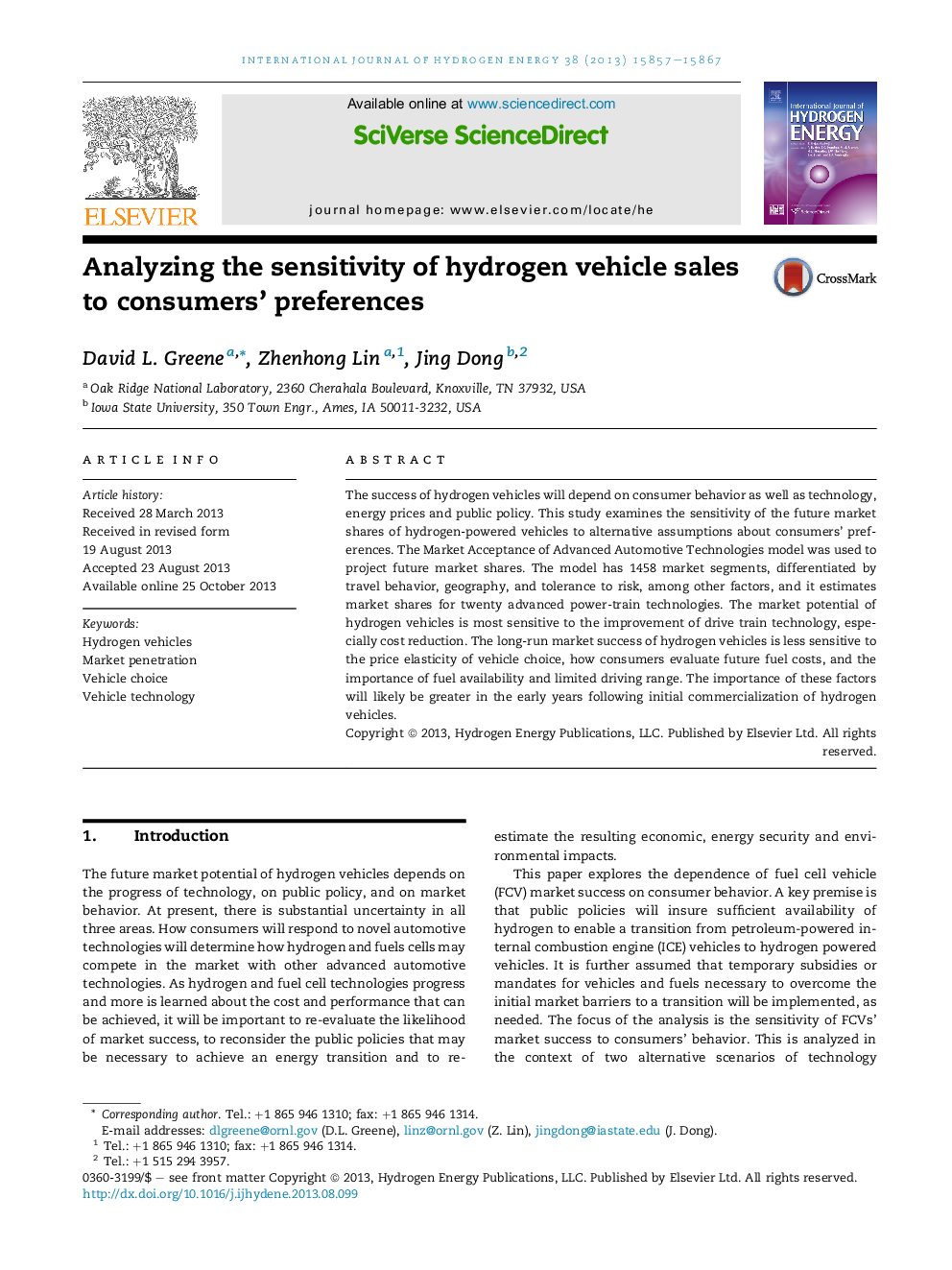| Article ID | Journal | Published Year | Pages | File Type |
|---|---|---|---|---|
| 1274145 | International Journal of Hydrogen Energy | 2013 | 11 Pages |
•Simulation is used to analyze how consumer preferences affect H2FCV market share.•Success of H2FCVs is robust if technology goals are met and effective polices are used.•Market success of H2FCVs is aided by the success of battery technology.•Little is known about how consumers will respond to H2FCVs during a transition.
The success of hydrogen vehicles will depend on consumer behavior as well as technology, energy prices and public policy. This study examines the sensitivity of the future market shares of hydrogen-powered vehicles to alternative assumptions about consumers' preferences. The Market Acceptance of Advanced Automotive Technologies model was used to project future market shares. The model has 1458 market segments, differentiated by travel behavior, geography, and tolerance to risk, among other factors, and it estimates market shares for twenty advanced power-train technologies. The market potential of hydrogen vehicles is most sensitive to the improvement of drive train technology, especially cost reduction. The long-run market success of hydrogen vehicles is less sensitive to the price elasticity of vehicle choice, how consumers evaluate future fuel costs, and the importance of fuel availability and limited driving range. The importance of these factors will likely be greater in the early years following initial commercialization of hydrogen vehicles.
